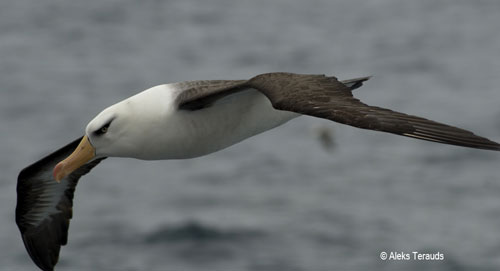One of the most pervasive impacts of commercial capture fisheries is the accidental death of huge numbers of marine predators, which become entangled in fishing gear when scavenging for food in the form of fisheries waste. This mortality (termed bycatch) is unsustainable and has drastically reduced populations of many apex marine predators. Understanding and mitigating the impacts of bycatch mortality is an issue of global conservation concern, and forms the central thesis of this PhD studentship.
The studentship, funded by the MARES Doctoral Programme on Marine Ecosystem Health & Conservation, will focus on individual-level tactics of Campbell Thalassarche impavida and Grey-headed T. chrysostoma Albatrosses in relation to environmental conditions and commercial fisheries activity. Scaling these individual-level behaviours to population-level processes will require knowledge of both behavioural ecology and conservation biology.

The student will be based at the Marine Biology and Ecology Research Centre, University of Plymouth, UK with Dr Stephen Votier, but will be expected to spend at least six months at the Ecology of Birds & Marine Mammals Group, Centre d'Etudes Biologique de Chizé, France with Dr Henri Weimerskirch. Fieldwork will be conducted on Campbell Island, New Zealand where the student will work closely with Dr David Thompson at the National Institute of Water & Atmospheric Research, Wellington, New Zealand.
Applications must be physically and mentally able to spend long periods in remote conditions in the sub-Antarctic and hold a Master's level qualification in biology or a related subject. Applicants should carefully read the MARES web site to determine whether they are eligible to apply, and if they are, to submit applications by 15 January 2011. Contact Stephen Votier (
Click here and scroll to Project MARES-27-2010 for full information on this PhD opportunity.
John Cooper, ACAP Information Officer, 5 December 2010

 Français
Français  English
English  Español
Español